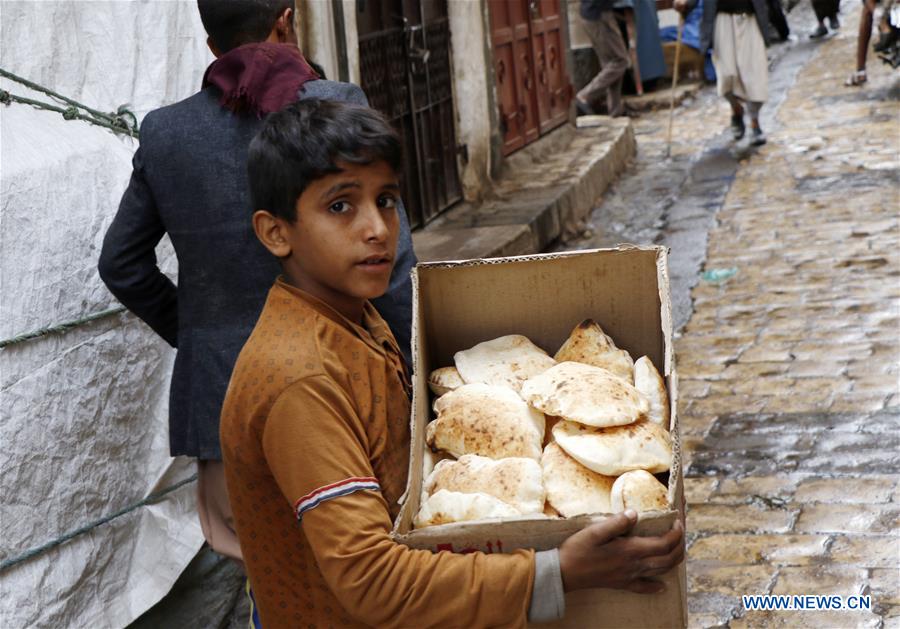 ?
?A Yemeni child carries a box of bread for sale at a market in Sanaa, Yemen, Sept. 28, 2019. The UN Children's Fund (UNICEF) announced Wednesday that 2 million Yemeni children are out of school, including almost half a million who dropped out since the conflict escalated in March 2015. (Photo by Mohammed Mohammed/Xinhua)
ADEN, Yemen, Sept. 25 (Xinhua) -- The UN Children's Fund (UNICEF) announced Wednesday that 2 million Yemeni children are out of school, including almost half a million who dropped out since the conflict escalated in March 2015.
The UNICEF said in a statement that the education of another 3.7 million children now hangs in the balance as teachers' salaries have not been paid in over two years.
"Violence, displacement, and attacks on schools are preventing many children from accessing school," said Sara Beysolow Nyanti, UNICEF representative in Yemen.
The current conflict in Yemen spiraled more than four years ago and has devastated the country's already fragile education system.
One in five schools in Yemen can no longer be used as a direct result of the conflict.
When children are not in school, they face countless risks of exploitation, abuse, and other rights violations, the UN agency said.
"Children out of school face increased risks of all forms of exploitation including being forced to join the fighting, child labor, and early marriage. They lose the opportunity to develop and grow in a caring and stimulating environment, ultimately becoming trapped in a life of poverty and hardship," added Nyanti.
The agency's statement called for stopping attacks on education facilities to protect children and teachers in war-ravaged Yemen.
It demanded the education authorities across Yemen to work together and find an immediate solution to provide salaries for all teachers and education personnel so that children can continue to learn.
The long-running conflict has caused the world's worst humanitarian crisis. Currently, some 24 million Yemenis, or 80 percent of the population, need humanitarian aid and protection, with some 20 million lacking food security, according to previous UN statistics.















